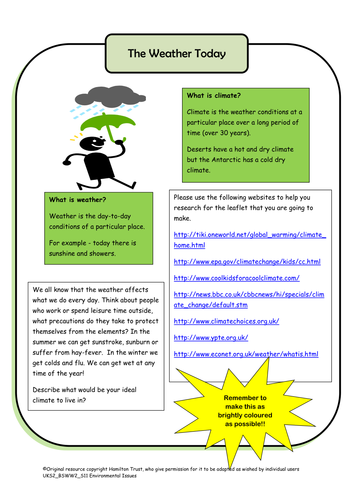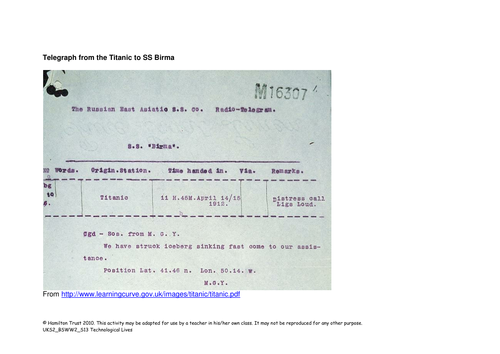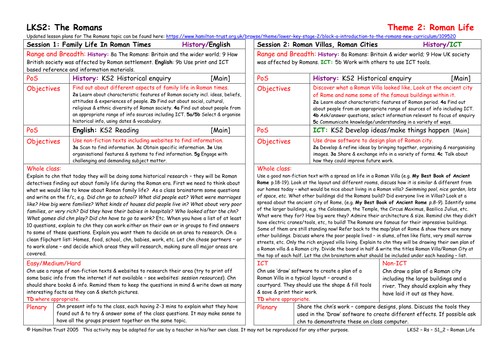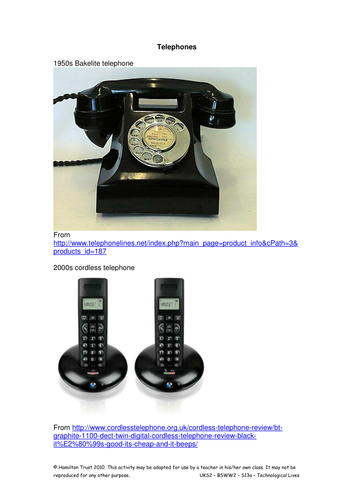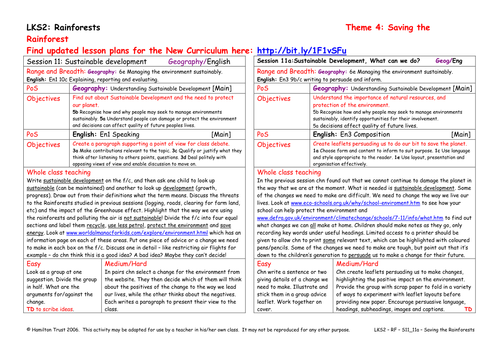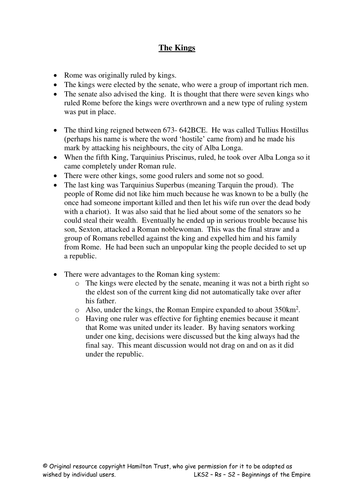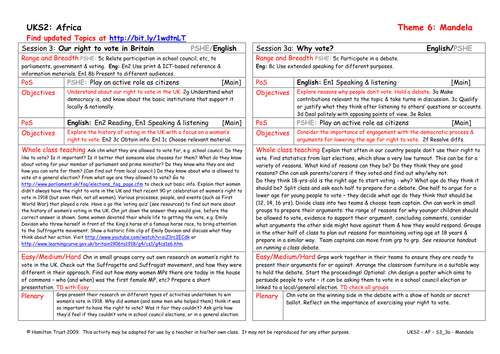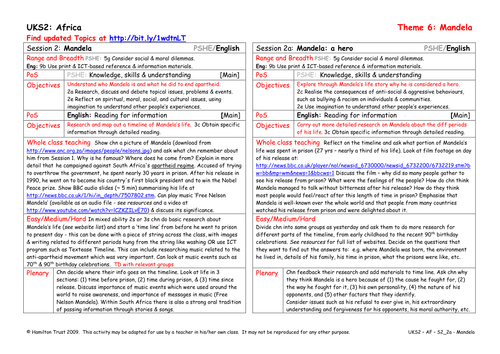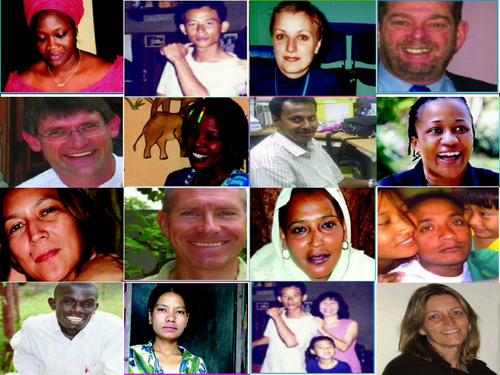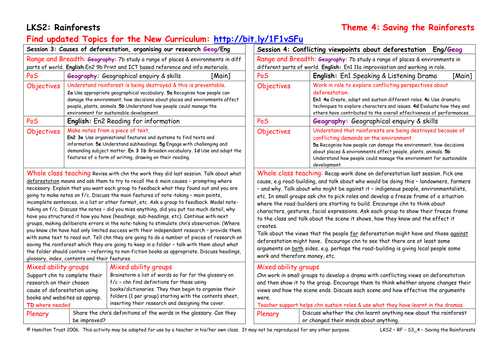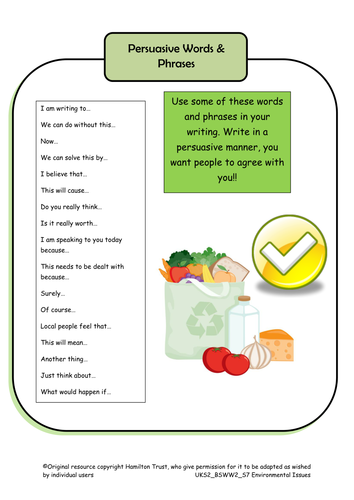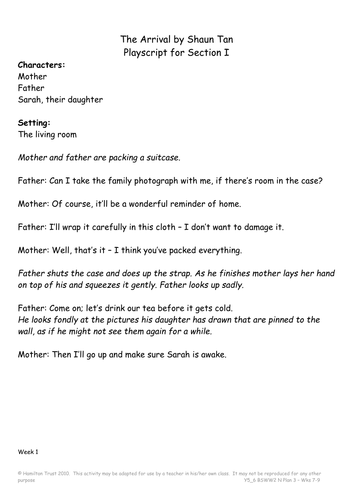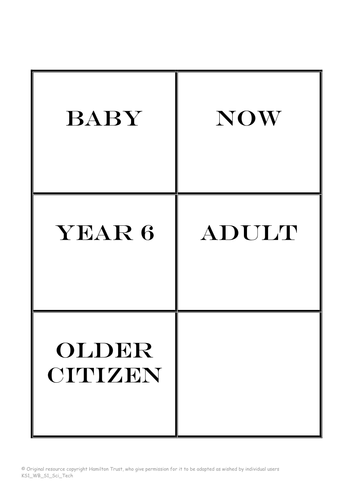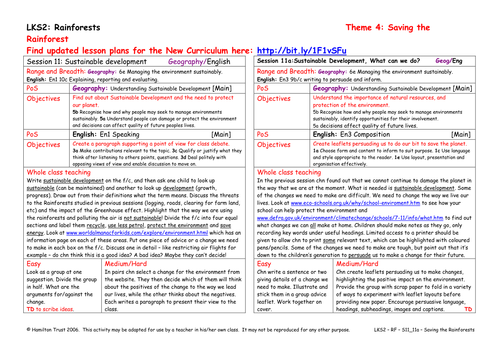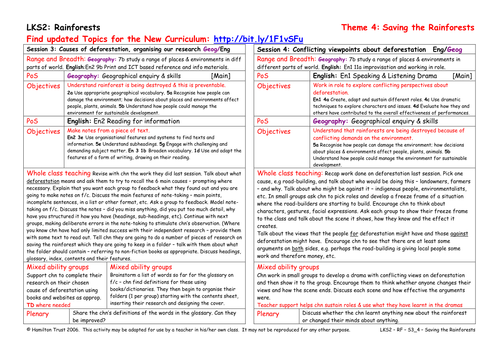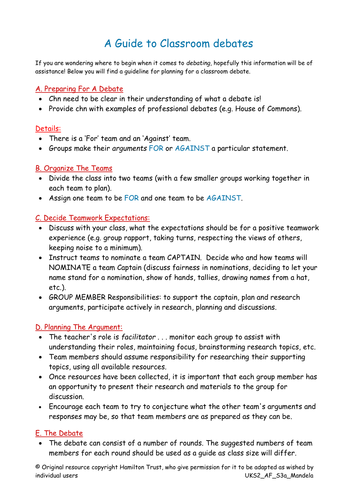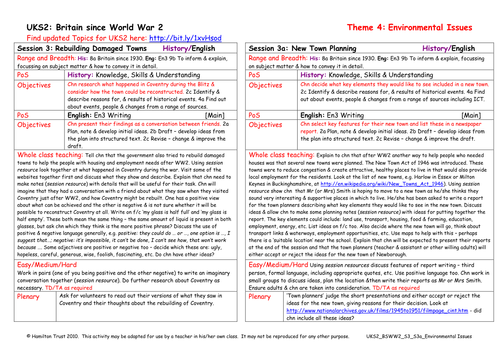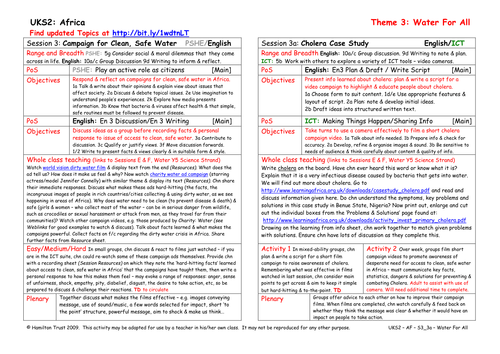
397Uploads
10041k+Views
11644k+Downloads
English language arts

The Weather Today
Children learn the differences between weather and climate. Are we the cause of changes in the weather? What might we have done to make this happen? Children are given some websites to research and the activity is to produce a leaflet for younger children to explain this.

Children discuss the advantages and disadvantages of texting and emails, then write an email with attachments to an email ‘pen pal’ about their favourite session from this topic.

Telegrams
Children look at old telegrams and then write their own about an important event to the British Prime Minister of the day.

Family Life In Roman Times
This session begins some work on family life in the Roman Empire. Children prepare for, and then carry out their own research. Each group picks an aspect of family life and then use the internet as well as books and information sheets to find out some facts.
Suitable for years 3 and 4.

Telephones
Children order pictures of old telephones. They decode, then write mobile ‘phone text messages.

Sustainable Development
The way we are damaging the planet we live on is not sustainable! Children find out about sustainable development and look at some of the changes that we need to make. Children think of both positives and negatives for these changes.

Kings, Republic, Emperors
Children locate the Roman empire on a timeline and discuss how historians and archaeologists are able to piece together the facts. They look at the 3 systems of government: monarchy, republic and emperors, and debate advantages/disadvantages of each.
Suitable for years 3 and 4.

Our right to vote in Britain
Examine voting in the UK, recent elections, and why we vote. Children use a quiz to explore the history of voting in the UK and focus on women’s right to vote, and then do further research. Watch film footage of Emily Davison.
Suitable for years 5 and 6.

Mandela
Link apartheid to Mandela. Who he is, where he comes from, why he is so famous, right up to the present day. Use internet and books to find information about Mandela’s life and start to develop a time line as a useful tool to refer to throughout the theme.
Suitable for years 5 and 6.

HIV: Kishe’s Story
Return to MDG 6, and focus on HIV and AIDS. Children read a story of a young orphan, Kishe, and reflect on her life story and the wider impact of HIV across generations.
Suitable for years 5 and 6.

Conflicting viewpoints about deforestation
There are two sides to every argument! In this session children take on roles on opposing sides of the deforestation argument. Children create simple freeze frames and sketches to put points across.

Shopping Bags
Food was bought locally and regularly in small shops after WW2. Assistants picked and weighed food for you, there was very little packaging as paper bags or your shopping basket were used. Children write a letter to persuade shops not to use plastic bags.

Refugees and human rights weeks 7 - 8
Consider different genres then read a variety of stories about refugees and asylum seekers. Children summarise stories and write sequels and playscripts based on stories they have read.
Finish with a This is Your Life programme for one of the characters.

Journey of Life
How have we changed since we were babies? How will we change as we grow up? Children explore these questions by thinking about the different stages of life and recording their thoughts in zig-zag books.

Sustainable development - What can we do?
All talk no action...! Not in this session. Children use the internet to find out what else we can do before creating leaflets to persuade other children and adults to make the change!

Causes of deforestation, organising our research
In this session children find out how to create key word notes and organise their information in folders with contents pages. Children continue to use non fiction book features and the internet to locate information effectively.

Not In My Back Yard
Discuss a proposed plan for creating wind energy. They are given time to research and prepare for a debate ‘Should 7,000 wind turbines be placed in and around the UK?’ In teams they will put forward their views backed up with evidence to support their case.

Why Vote?
Discuss facts about voting in the UK: not everyone exercises their right to vote. Engage children on the right to vote and its significance in their own country. In two teams for and against, debate the issue of lowering the voting age.
Suitable for years 5 and 6.

New Town Planning
Find out about the New Towns that were planned to help with housing shortages. Look at some examples. Children identify the key elements that they would like included in a new town, and then write a report for a new town planning committee.

Cholera Case Study
Through following a case study in Benue State, Nigeria, children learn about cholera. They plan and write a script for a video campaign to highlight and educate people about cholera, finally taking turns to use a camera to film their short cholera campaign videos.
Suitable for years 5 and 6.

